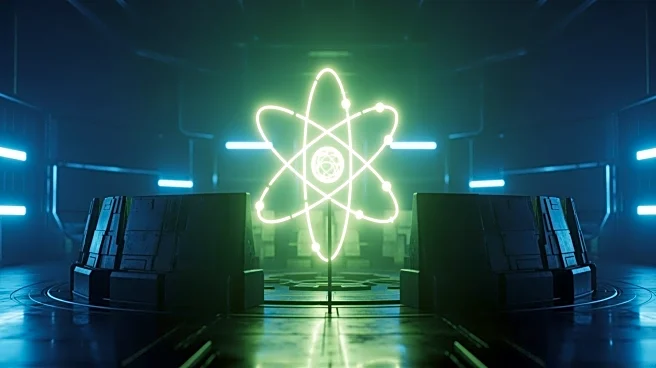What's Happening?
Iranian President Masoud Pezeshkian has announced plans to rebuild the country's nuclear facilities stronger than before, following recent U.S. strikes. During a visit to the Atomic Energy Organization
of Iran, Pezeshkian emphasized that the nuclear program is for civilian purposes and reiterated Iran's stance against nuclear weapons. This development comes after a period of heightened tensions, referred to as the '12-Day War,' involving coordinated Israeli and U.S. military actions. Despite international sanctions reimposed in September, Iran has reportedly increased imports of sodium perchlorate from China, a key component for missile fuel, indicating a potential resurgence in missile production. However, Iran still lacks critical equipment for solid-fuel propellant manufacturing, and there is no evidence of resumed uranium enrichment.
Why It's Important?
The rebuilding of Iran's nuclear facilities and the increase in missile-related imports could escalate regional tensions and impact global security dynamics. The situation poses a challenge for international diplomacy, particularly for countries involved in negotiations to curb Iran's nuclear ambitions. The potential for renewed missile production may also affect the balance of power in the Middle East, with Israel and other nations closely monitoring developments. The ongoing sanctions and Iran's response highlight the complexities of enforcing international agreements and the potential for further geopolitical conflicts.
What's Next?
Iran's actions may prompt further diplomatic and military responses from the U.S., Israel, and other concerned nations. The international community will likely continue to push for negotiations to limit Iran's nuclear capabilities. Meanwhile, Iran's increased missile production could lead to additional sanctions or military interventions. The situation remains fluid, with potential for both escalation and diplomatic resolution depending on the actions of key stakeholders.
Beyond the Headlines
The ethical and legal implications of Iran's nuclear ambitions and the international response are significant. The situation raises questions about the effectiveness of sanctions and the role of international law in preventing nuclear proliferation. Additionally, the involvement of China in supplying missile components to Iran highlights the complex web of international relations and the challenges of maintaining global security.









